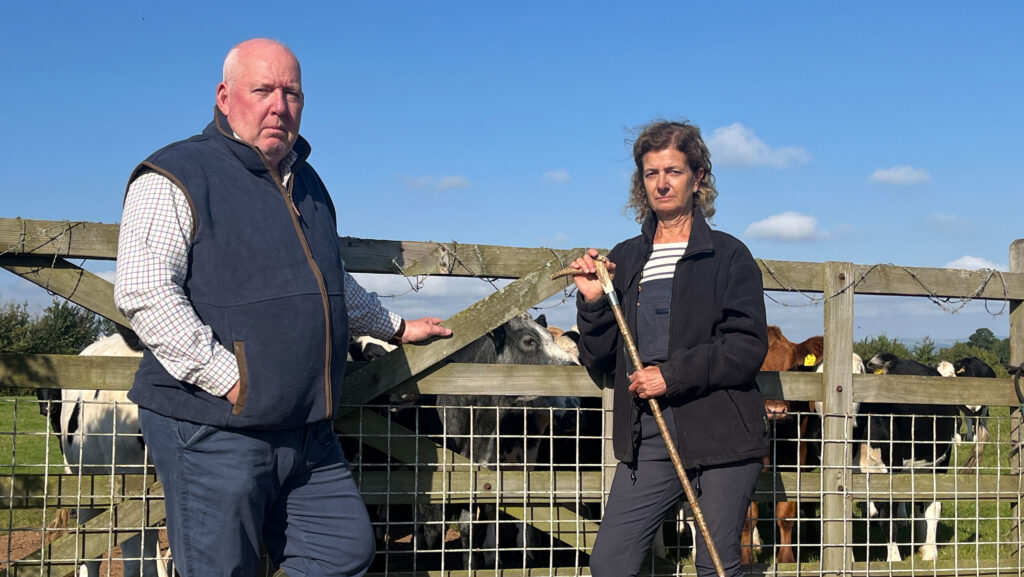National Trust to reclaim farm from tenant farmers
 Andrew and Kate Lamont © Andrew Lamont
Andrew and Kate Lamont © Andrew Lamont Tenant farmers in Devon have been left angry and frustrated over National Trust plans to reclaim the farm for diverse purposes.
Andrew and Kate Lamont, who currently farm Lower Halsdon Farm, in Exmouth, fear the Trust will no longer be honouring the wishes of late farmer Stanley Long, who gifted the farm to them on the understanding it would be used as agricultural land in perpetuity.
The Lamonts have been rearing sheep at the 42ha holding under a 10-year farm business tenancy (FBT) since 2016.
See also: National Trust rewilding projects leaves tenants feeling pushed out
But the National Trust has told the couple it will not extend their agreement when it ends in May 2026, meaning there will be no tenant farmer residing and working on the farm.
The decision comes in the backdrop of broader concerns from the Tenant Farmers Association (TFA) and others about landlords taking land out of tenancy agreements to pursue non-farming activities, such as rewilding.
The Lamonts fear these changes may lead to future development, undermining the legacy of Mr Long, who rejected a £4m offer in 1991 from housing developers for 12 acres of the farmland at Lower Halsdon in order to preserve the farm’s agricultural use going forward.
Mr Long was lauded for resisting the temptation to sell part of the farm to developers and his decision was widely welcomed by locals who praised his altruism.
However, Mr Lamont told Farmers Weekly that many locals would be upset on discovering that the National Trust do not intend to have a tenant farmer living in the farmhouse and working the land, as Mr Long would have wanted.
“I’m concerned that, while the National Trust currently has no plans to sell any of the land on the farm, the absence of a tenant farmer residing and working the land at Lower Halsdon in the future may remove any obstacles preventing the Trust from selling portions of the farmland to developers for housing,” he said.
Public footpath
The National Trust spent tens of thousands of pounds to build a 1km-long public footpath crossing the land at Lower Halsdon Farm in 2017, which upset many locals and also isolated a 2.16ha field from the farm.
In a letter sent to TFA chief executive George Dunn, shared by Mr Lamont with Farmers Weekly, National Trust director of land and estates Giles Hunt explains that the restricted covenants – which stated that the farm should not be used for any other purpose, other than an agricultural or horticultural holding – “are no longer enforceable”.
Mr Dunn said he has raised the concerns of Mr Lamont in a recent meeting with Hilary McGrady, the National Trust’s director general, and other senior members of her team, adding that “discussions about the case are ongoing”.
The National Trust said its plans for Lower Halsdon include using the land for conservation grazing, limited arable cropping to support wildlife, and planting trees and orchards.
“Lower Halsdon Farm, near Exmouth in Devon [100 acres of land with redundant traditional buildings and house] has been identified as an important site within the south-west region that has the potential to create habitats to help us achieve some of our nature-friendly farming ambitions, as well as providing more public access,” said a National Trust spokesman.
